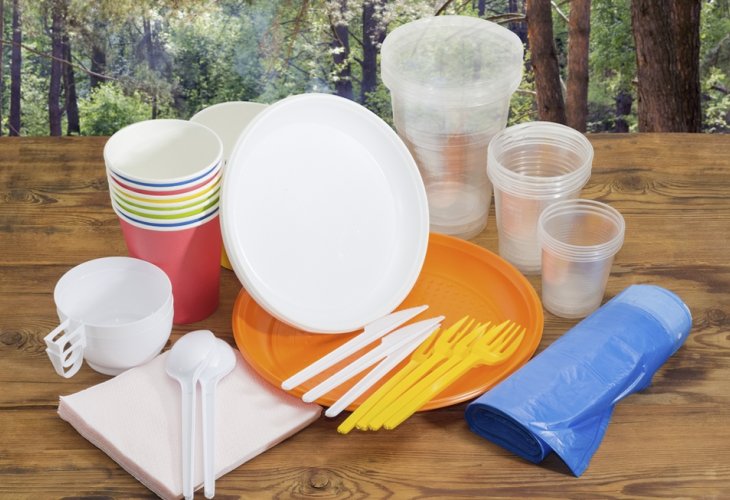Polluting, Non-Recyclable, and Returning to Our Bodies: 9 Thought-Provoking Facts About Disposable Tableware
The use of disposable tableware is becoming increasingly common in Israel year by year. Microplastics found in these disposables enter our bodies in various ways, leading, according to researchers, to severe harm, including different types of cancer, hormonal damage, and even reduced intelligence in children.
 (Photo: shutterstock)
(Photo: shutterstock)You woke up in the morning, drank a cup of coffee. Had a quick breakfast. Took a shower and cleaned your ears on the way.
On your way to work, you bought a cup of hot cocoa, and perhaps, for health's sake, a refreshing salad.
In the afternoon, you gave the kids drinks, a lot. It's hot today. Then you served them lunch, and later on, dinner.
In what utensils did you serve all your daily adventures?
It's likely that for at least some of the activities we've listed, you regularly use disposable plastic utensils. Disposable tableware has become increasingly popular over the past decades. They are convenient to use, save the need to wash dishes, allow easy variety, and are generally very popular with most residents of the country. On the other hand, whether you are aware of it or not – extensive use of disposable tableware harms the environment. What do you really know about disposable tableware, and how important is it to try to avoid using them?
1. Israel ranks second in the world in the consumption of disposable tableware; the first is the United States. The reason is probably the hosting culture that is more prevalent here than elsewhere. Note that 30% of disposable tableware is purchased by the ultra-Orthodox community. Other heavy users of disposables are the Druze.
2. How much disposable tableware do we use? Well, just a drop in the ocean: The number of disposable plastic cups sold for cold drinks in the Cofix chain alone in one year is no less than a million. And if you wondered how much money the disposable industry rolls, note this: The annual sales turnover of disposable utensils – both in the domestic and institutional market in Israel – stands at an amount between 2 to 6 billion shekels.
3. The amount of disposable tableware recycled in Israel will surprise you: Exactly 0% of disposable utensils in Israel make it to recycling. Yes, we didn't make a mistake. There is no recycling of plastic utensils in the country. The Ministry of Environmental Protection claims that recycling these utensils is difficult to impossible, as they are contaminated with food and hard to clean and separate from other waste. Additionally, the quality of disposable utensils in the country is low, so the effort to recycle them is simply not worthwhile.
4. Indeed, you should know that about 15% of disposable tableware sold in the country does not meet the Israeli standard, which requires a certain amount of material that can decompose in a home composter.
5. The results are seen in the garbage: 6% of the plastic waste collected in Israel consists of disposable tableware. And in clearer numbers: 60,000 tons of disposable utensils are collected annually in Israel's garbage.
6. So, is all this really so terrible? Well, experts involved in the subject argue yes, very much so. The microplastics found in disposable tableware enter our bodies in various ways due to the use of these utensils and cause, according to researchers, severe damage, such as different types of cancer, hormonal disruptions, and even impacts on children's intelligence. There are conditions that increase the risk of harmful substances leaching into the food we eat: fatty foods, for example, heat, UV radiation, and shaking of the plastic.
Besides the direct health problems, disposable tableware ends up in seas and rivers, harming animals that swallow them; they cause pollution in public areas, especially on beaches, and more.
7. How much does it cost to deal with these damages? This data is not only from Israel but from around the world: 75 billion dollars are invested each year in dealing with the damage caused by plastic waste, such as cleaning costs, beach enforcement, damage to marine life, damages in fishing, shipping, tourism, and more.
8. Nevertheless, we are not really learning our lesson. Between 2015-2018, the consumption of disposable tableware in Israel increased by 10%!
9. Different countries are trying to limit the use of disposable tableware. Starting in 2020, a law in France will require disposable utensils to contain at least 50% material that can decompose in a home composter. From January 2021, various single-use products will be banned for sale in the European market. Among the prohibited products will be disposable plates and cutlery, drinking straws, stirrers, and even plastic ear swabs and plastic sticks intended for use in balloons.

